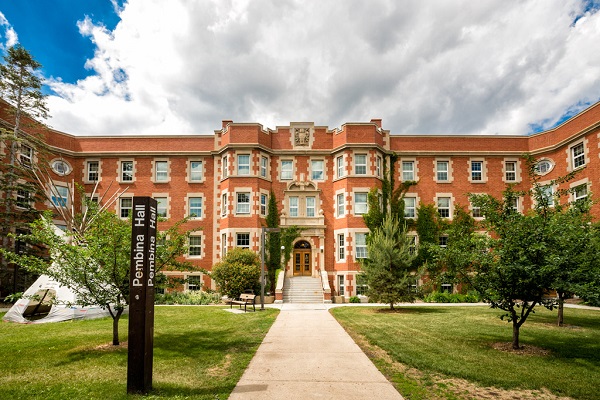University of Alberta: U of A researcher part of team receiving $2M from Health Canada to fight overdose epidemic
COVID-19 social isolation is one of the main causes of Canada’s overdose epidemic. Each day there are up to 17 overdoses in Canada and two to four in Alberta. The vast majority of overdoses occur when people use alone.
Monty Ghosh, a physician and assistant professor at the University of Alberta and the University of Calgary, said that with the right support, overdose fatalities are preventable and overdoses are reversible. That’s why Ghosh, in partnership with Grenfell Ministries and Brave Technology Coop, launched the National Overdose Response Service (NORS) in December 2020 – a toll-free national hotline for all Canadians to end drug use isolation. Health Canada awarded a $2-million grant to support the service and to conduct a study to evaluate it.
“Since we launched, NORS has serviced over 2,492 calls and activated emergency response for 31 potentially fatal overdoses,” said Ghosh. “Our priority is to keep those who are using substances safe from overdose, while upholding substance users’ right to dignity, respect and confidentiality.”
The support from Health Canada will help expand the service and conduct needed research. The team hopes to gain a better understanding of how to reach key demographics such as people who live in rural and Indigenous communities, people of colour and others who are often too far from harm reduction resources like supervised consumption sites.
The NORS hotline provides confidential, non-judgmental support and supervision for substance users, whenever and wherever substances are used. Anyone, anywhere in Canada and in any circumstance, can access a community of support.
“If someone is using drugs alone, they can call the hotline and speak with one of NORS’ supporters,” said Oona Krieg, chief operations officer at Brave Technology Coop and co-founder of the service. “The supporter will stay on the phone with the caller while the caller uses their substance of choice. If at any point they become unresponsive, NORS connects to 911 and dispatches an ambulance directly to the person’s location. Volunteers are available 24 hours a day, seven days a week.”
Krieg noted that NORS is peer-driven, and volunteers are the lifeblood of the organization. The people answering the hotline have personal experience with substance use. Some are front-line health workers or have been personally affected by overdose.
“The National Overdose Response Service is a labour of love — one built by the desire to reduce the body count from the opioid epidemic and build connections as peers with people who use drugs across Canada,” said Kim Ritchie, co-founder and executive director of NORS and Grenfell Ministries.
“We can quantify the number of deaths, calls and overdoses reversed, but we cannot quantify the connection a person feels knowing another cares when they call or the grief experienced by loved ones for the moments that never were. We are here, with no judgment and only love.”

